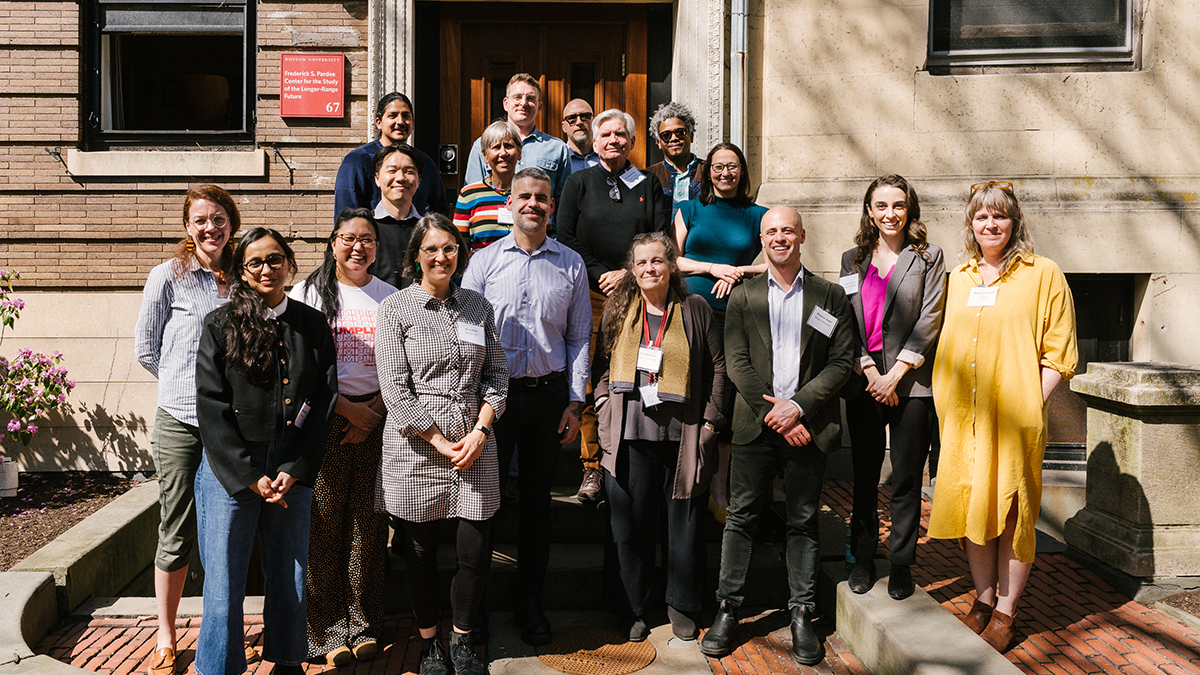Pardee Center Hosts Two-Day Workshop Exploring the Future of Food

On April 24 and 25, 2025, the Frederick S. Pardee Center for the Study of the Longer-Range Future and the BU Center for the Humanities hosted a two-day experts’ workshop exploring a set of fundamental questions about the future of food: how choices around consumption and production inflect the wider transformation of food systems. The workshop, titled “Eating to Change the World” and convened by Pardee Center Faculty Research Fellow Benjamin Siegel (BU History) and Andrea Catania (BU Gastronomy), brought together scholars, activists, chefs, and students.
The gathering opened with reflections on the urgency of rethinking consumption in the face of ecological crisis, labor precarity, and social inequality. The first day’s panels traced how histories of food reveal shifting narratives of power and resistance. Jessica Carbone (BU Gastronomy), Tom MacDonald (Harvest on Vine Emergency Food Pantry), and Anna Zeide (Virginia Tech) considered food’s mutable meanings across time in a session moderated by Megan Elias (Gastronomy). A public roundtable, “What Is the Future of Food?,” featured a series of brief, sub-three-minute presentations forecasting challenges and possible solutions in food and agriculture.
Afternoon sessions spotlighted social innovation and justice. Irene Li (Mei Mei / Prepshift) and Ismail Samad (Corbin Hill Food Project) discussed food entrepreneurship as activism in a panel moderated by Chef Chris Douglass (Programs in Food & Wine). Maggie Dickinson (CUNY Queens College) and Mark Araujo (Boston Food Forest Coalition) examined food infrastructures and systems of equity in a conversation moderated by Erwin Li (Tufts University).
The second day’s panels, hosted at BU’s Groce Pépin Culinary Innovation Laboratory, turned to the values underlying our food systems. Christine Baumgarthuber (Brown University), Jan Dutkiewicz (Pratt Institute), and Taylor Reid (Culinary Institute of America) explored ethics, aesthetics, and market critiques in a session moderated by Karen Metheny (BU Gastronomy). The final panel, “Consuming Stories,” wove together taste, narrative, and colonial memory, featuring Meghna Sapui (University of Michigan), Lisa Heldke (Gustavus Adolphus College), and Gabriel Rosenberg (Duke University), and moderated by Ellen Messer (Tufts University / Boston University).
The event closed not with answers but with provocations: can we imagine food systems built around care (for humans and non-humans) in place of violence? Can memories of food and forgotten practices of cooking and commensality help rebuild practices of marketing, production, and economics? What might a new reckoning of cost and impact in food systems mean?


